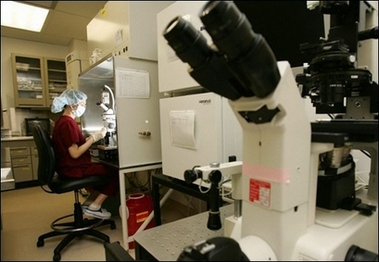Scientists discover new, potentially deadly bacteria
(Agencies)Updated: 2007-06-08 08:36
SAN FRANCISCO - In a dramatic case of microbial sleuthing, US scientists said they have discovered a new, potentially deadly strain of bacteria previously unknown to medicine.
Named Bartonella rochalimae, the new species is a close relative of a microbe that sickened thousands of soldiers during the First World War with what became known as trench fever, spread through body lice.
It is also related to a bacteria identified 10 years ago during the AIDS epidemic in San Francisco as the cause of cat scratch disease, which infects 25,000 people a year in the United States.
It was this previous work on cat scratch disease related to AIDS that helped experts at the University of California San Francisco (UCSF) and the US Centers for Disease Control and Prevention isolate the new bacteria found in the female traveler.
The findings are published in the New England Journal of Medicine.
Two weeks after returning to the United States from her trip to Peru, the woman experienced potentially life-threatening anemia, a rash, an enlarged spleen, insomnia and a high fever that lasted for several weeks.
Her traveling companion did not fall ill.
The Peruvian Andes is home to a related bacteria, spread by sand flies, and at first this was what experts thought was causing her illness.
Further investigation indicated the culprit was a new species altogether.
The new discovery is the sixth species identified that can infect humans, said Dr. Jane Koehler, professor of infectious diseases at UCSF and senior author of the paper.
In 1987, Koehler encountered her first patient infected with Bartonella at the AIDS Clinic at San Francisco General Hospital.
"The bacteria were eating away a bone in the arm of an AIDS patient - for months," Koehler said. "They can cause extremely painful lesions and tumors of blood vessels on the skin of immunocompromised patients."
In 1997, her team discovered that the Bartonella henselae bacterium causes cat scratch disease. Symptoms include swollen lymph nodes and fever after a person is scratched by a cat.
The new bacterium is treated with a different antibiotic that those used for cat scratch disease.
"When a patient has a high and persistent fever, we need to come up with the correct diagnosis and treatment as soon as possible - particularly for those with a weakened immune system, who can die from the infection," Koehler said.
|
||
|
||
|
|

